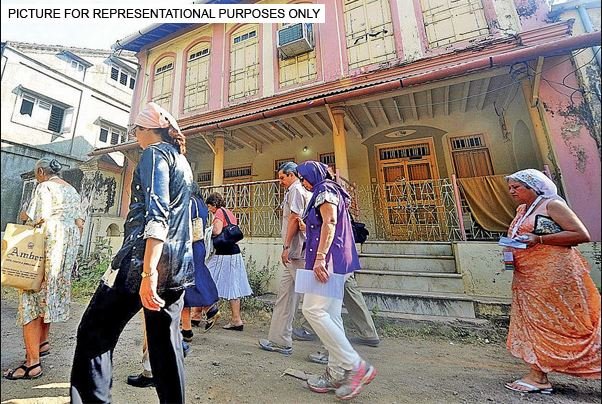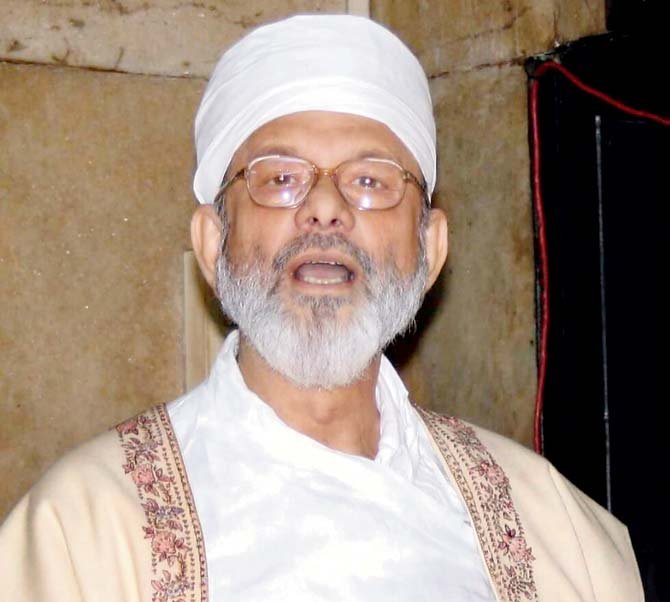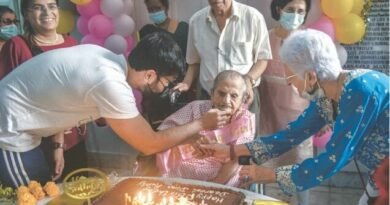ELDERLY PARSIS TO ACT AS BABY-SITTERS
Jiyo Parsi programme will help slowdown the decline of Parsi population.
In what might be viewed as a winwin for Parsis of all age groups, the Jiyo Parsi programme, currently in its second phase, will rope in senior citizens (60 years and older) to take care of Parsi children up to the age of 10. The Jiyo Parsi programme is funded by the government and supported by UNESCO’s PARZOR (Parsi-Zoroastrian) Foundation and Bombay Parsi Punchayet.
To help stem the decline of Parsi population and encourage couples to have more than one child, the selection for this initiative will be based on the number of applicants, the kind of childcare support a person can provide and personal interviews. A panel will scrutinise all the applications by August 2018. Thereafter, the applicants will need to get their personal details verified by a representative of the Anjuman/Punchayet. The child service will be regularly monitored by a Jiyo Parsi counsellor.
“For lack of caregivers, working couples are reluctant to have a second child. Some creches do not treat children well, and yet they charge as high as Rs 6,000 per child. We feel that senior Parsi neighbours or grandparents could do the same, for which they will be paid Rs 3,000 per child. However, to ensure the safety of children, senior citizens will need to go through a scrutiny panel,” said Dr Katy Gandevia, programme co-ordinator, Jiyo Parsi programme.
The Parsi Zoroastrian population in India is fast diminishing; 35 per cent of Parsis are in the age group of 60 and above. In about 20 years, there will be no more than 20,000 Zoroastrians in India. More than 30 Zoroastrian Anjumans in various towns and villages of Gujarat and Maharashtra are defunct because there are no Zoroastrians left.
In November 2017, Pearl Tirandas, public relations, Jiyo Parsi, had her second child after eight years. “I had my first child when I was 28 years old. Getting back to work with my son was difficult. I could neither pay attention to my work nor my son. After I joined Jiyo Parsi, I had my second child. My son is thrilled to have a brother and I can see the happiness I have given him,” said Tirandas. “With Jiyo Parsi programme, I know they will be well taken care of. I find this option better than leaving them with house-help. At the same time, the elderly Parsi community can engage itself constructively. The scheme will help them find happiness and improve their mental health by keeping them busy,” said Tirandas.
Zarine Engineer, a senior citizen from Dadar Parsi Colony, welcomed the concept and said, “I don’t mind looking after Parsi children if I have the time. It is a great concept, whereby senior citizens can help introduce children to our Parsi roots and traditions.” Dr Gandevia agrees that most of the time senior citizens feel they are dependent on their children for medical expenses. Financially constrained, children, therefore, are reluctant to have a second child. Additionally under the scheme, young Parsis, financially burdened by their parents, will also be given Rs 4,000 per month.





